Generative AI tools, such as ChatGPT and Google Bard, are taking the world by storm. Generative AI has a number of upcoming use cases, including healthcare, where the impact is likely to be more profound.
Artificial Intelligence (AI) is creating waves in the healthcare sector with a great promise to improve the level of care delivered to patients. Innovators and analysts in the industry are exploring AI’s potential to bring down the costs of care and streamline administrative procedures. The growing capability of AI in healthcare to analyze vast volumes of patient data to find disease patterns, support healthcare research, and offer ways to deliver more effective and affordable patient care are among its most promising aspects at present.
Building on AI in healthcare trends from 2022 and in the backdrop of rising healthcare costs and a continuing shortage of qualified medical professionals, generative AI in healthcare can help reduce inefficiencies in patient care, while powering other cutting-edge care management programs, such as Remote Patient Monitoring (RPM) and Chronic Care Management (CCM) to effectively manage chronic conditions at scale.
More Personalized Patient Care and Improved Patient Outcomes
Each patient’s health condition is unique, which requires personalized care plans designed to fit their needs. This may involve significant time, effort, and expense associated with traditional approaches to individualized care. The care team must review and analyze the data science the patient’s medical history, heredity information, and complex health data to deliver the best care.
With generative AI, this task gets easier, faster, and more accurate. For instance, the medical team can automate data analytics with tools such as neural networks such as ChatGPT and identify health patterns from the patient’s data that indicate their potential risk of developing a chronic illness, or the risk of developing complications in their existing condition.
Generative AI can also analyze massive research data sets to forecast potential health outcomes, and suggest care strategies that can help prevent or improve chronic conditions. Medical providers can utilize the technology to deliver customized treatments at a fraction of the cost, and ensure better outcomes and higher patient satisfaction rates.
Improved Clinical Decision-Making with Enhanced Medical Records
Generative AI in healthcare can assist in screening patients for various chronic diseases and help medical providers make more accurate and data-driven diagnoses. These AI tools can analyze large data sets from a patient’s health records, known symptoms, patient feedback, Remote Patient Monitoring data for specific physiological parameters (such as blood pressure or blood glucose levels), other medical records, imaging, and lab test results, previous treatment data as well as data of other patients with similar medical profiles.
With more informed diagnoses, treatment selection, and the development of targeted treatment plans, healthcare organizations are able to provide personalized patient care at scale.
For instance, AI algorithms are already being used by healthcare providers to analyze complex genetic data of cancer patients with the aim to prescribe them the most targeted chemotherapy medications or suggesting specific forms of radiotherapy, immunotherapy, and other treatments.
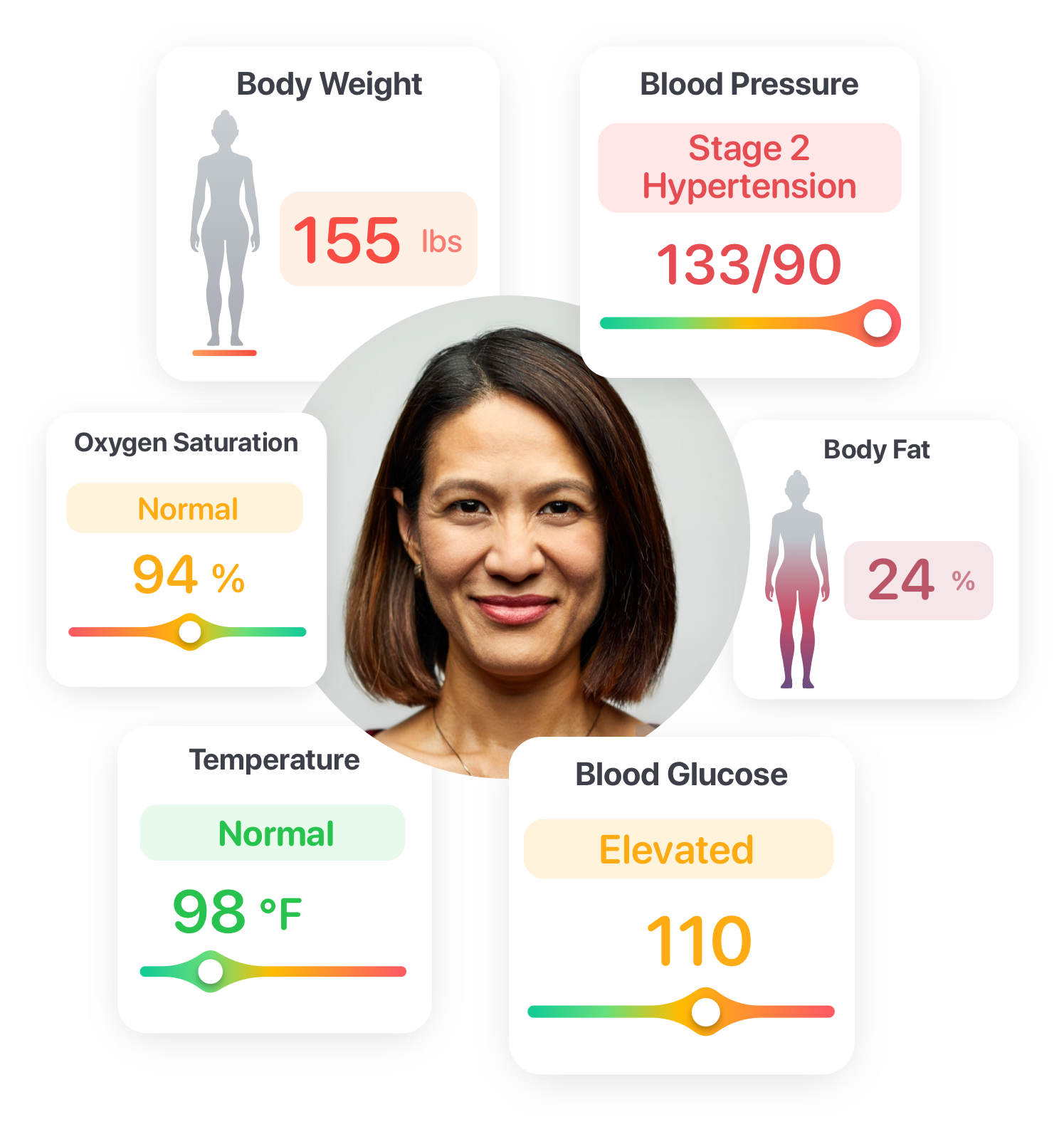
Optimize Remote Patient Monitoring with Artificial Intelligence
The core advantage of RPM technology is that it can collect and transmit the patient’s health data to the care team in near real-time. Cellular-based RPM devices can continuously provide healthcare data on the patient’s blood oxygen, blood sugar, hypertension, and heart rate variability. If any unexpected changes occur in the patient’s health patterns, they can be quickly detected by healthcare professionals and timely remedial measures can be undertaken.
AI in healthcare can boost the effectiveness of Remote Patient Monitoring initiatives from inception. By evaluating large datasets containing clinical, socioeconomic, and behavioral information, sophisticated algorithms may give a more complete picture of the patient’s condition. Based on this medical records management, professionals can use stratification methods to identify risk levels and select patients that are most likely to respond optimally to the RPM approach.
For the care team, it can sometimes become a challenge to analyze large amounts of near real-time patient data continuously and interpret it accurately to deliver tailored care at the right time.
Generative AI algorithms can be fed this data to support clinical practice with quicker analysis at minimal operational cost. This can enable medical providers to move away from reactive to proactive care with improved patient outcomes.
RPM and Applications of AI
The integration of artificial intelligence (AI) into RPM encompasses numerous applications, including:
-
Using machine learning algorithms to assess sensor data provides doctors with decision assistance for more individualized treatments and better results.
-
The study and interpretation of data by healthcare professionals using AI and machine learning can help find patterns in the data that may signal changes in a patient’s condition that warrant immediate medical attention.
-
Telemonitoring AI systems rely on and augment the capabilities of other ICT components in the healthcare system while also having the potential to outperform humans in several ways.
-
Patients with chronic illnesses, including those with diabetes, hypertension, thyroid, COPD, and heart failure can particularly benefit because the application of artificial intelligence and data science tools improves chronic disease management and monitoring.
AI-Powered Virtual Assistants and Chatbots with Natural Language Processing
Generative AI-powered chatbots and virtual assistants can also help remotely monitor the patient’s condition, especially in the case of high-risk patients (seniors, children, and those suffering from multiple chronic diseases or complicated health conditions). The AI virtual assistants can also offer personalized health, nutrition, and fitness advice to help patients manage their chronic conditions more effectively by leveraging natural language processing.
Generative AI-powered chatbots can answer basic questions about the patient’s prescribed drugs, such as their safe use, risk of side effects, and drug interactions. Virtual assistants can also recommend home remedies to manage symptoms or recommend when to seek professional medical care. This empowers the patient and improves their confidence even when they are not able to personally consult with a physician at short notice.
Medical providers can also use generative AI-powered chatbots and virtual assistants to manage simple administrative tasks and automate appointment scheduling. Many of the patients’ queries can be answered by natural language processing the chatbots. Virtual assistants can assist new patients with filling out forms, submitting online documentation, or updating patient information.
Enrollment in Health Plans
Generative AI in healthcare can also play a useful role in increasing the number of individuals who enroll in health plans, particularly during periods of open enrollment. It can achieve this by delivering valuable insights and timely prompts. For example, by providing vital information regarding policy changes and any essential steps policyholders are required to take, generative AI stimulates policyholder engagement, motivating them to fulfill the required steps in a timely manner.
Moreover, generative AI empowers healthcare teams within insurance companies to swiftly generate customized textual content. This capability enables the creation of diverse policy variations tailored to meet the specific needs of different client segments. For instance, employees nearing retirement have distinct preferences compared to those who have young children. With generative AI, insurers can cater to these diverse groups by providing appropriate options and benefits, all powered by natural language processing.
Electronic Health Record (EHR) Enhancements to Improve Health Outcomes
Electronic health records (EHRs) perform a crucial role in healthcare delivery. The management of EHRs and healthcare data can become more efficient with AI technology. Generative AI algorithms have the ability to analyze EHR data and identify meaningful trends and patterns. This analysis assists medical providers in identifying high-risk patients for chronic illnesses and developing tailored prevention and risk mitigation strategies.
For instance, AI can examine patient data, including medical history, genetic information, and lifestyle factors to predict the risk of developing conditions such as hypertension, cardiovascular disease, and diabetes. AI can also evaluate drug data to detect patterns that may contribute to adverse reactions and recommend alternative treatments.
Interpreting Unstructured Health Data
Unstructured patient data, such as EHRs, medical notes, and diagnostic images like X-rays and MRIs, present challenges during analysis and require conversion into a structured format. ChatGPT and other generative AI tools are useful for detecting and analyzing unstructured medical data, from various sources and transforming it into a structured format, enabling more effective and detailed insights for medical professionals.
Detecting Billing Fraud
Generative AI tools can be employed to detect potential billing fraud and ensure accurate medical coding. This not only leads to significant cost-efficiency for the organizations. For example, AI can identify patterns indicative of fraudulent claims (for example, billing for non-performed services or duplicate billing), and lower the risk of healthcare fraud.
Faster and More Accurate Medical Imaging
Diagnostic imaging techniques such as MRI, CT scans, and PET scans are integral to patient care, aiding in medical diagnosis and identifying critical injuries efficiently. Generative AI technology streamlines the imaging process, enabling care providers to make accurate diagnoses and reduce the gap between testing and results.
For instance, AI tools are already being used to reduce image noise, resulting in clearer scans. Machine learning combined with AI can also shorten overall scan times, which can reduce radioactive exposure for the patient as well as improve patient comfort. Stemming from this, AI and machine deep learning models have the potential to identify common abnormalities in diagnostic images automatically, reducing the need for human intervention.
The ultimate outcome of these capabilities is expedited patient care, particularly crucial in time-sensitive situations.
Predictive Medical Device Maintenance
Providing patient care necessitates both precision medicine and the use of various medical devices, ranging from advanced MRI systems to critical defibrillators. It’s essential for these devices to function properly to diagnose medical conditions accurately and enable life-saving interventions.
AI in healthcare can predict potential equipment failures ahead of time, allowing hospitals and medical centers to proactively handle repairs and maintenance, minimizing device downtime and ensuring uninterrupted delivery of care.
Predictive maintenance helps in alerting healthcare providers to potential equipment breakdowns before they occur. Generative AI can detect patterns within massive datasets that indicate an increased risk of device malfunction. Consequently, care teams can proactively maintain their equipment, ensuring its utilization for timely medical interventions and improving patient outcomes.
Drug Development and Discovery
Generative AI algorithms have the capability to analyze clinical trial data as well as other research data to predict the most effective compounds and determine potential targets for novel drugs. This deep learning capability can enable faster market entry for pharmaceutical companies at reduced costs.
Promising results have already been observed in drug discovery with generative AI. For instance, companies like Insilico Medicine have leveraged artificial intelligence and generative AI platforms to design and develop innovative drugs for diseases such as cancer and fibrosis. These advancements mark a groundbreaking shift for drug development companies that traditionally depend on manual effort only.
Robotic Surgery
AI-driven robots are employed in hospitals and surgery centers to assist with complex surgical procedures and provide valuable insights into surgical operations based on data. Generative AI in healthcare can also enable the training of these medical robots to interpret patient health conditions from medical images.
Pandemic Risk Assessment
The recent pandemic has highlighted the risk of rapid escalation of human-to-human transmission of viruses in the absence of prior immunity. Generative AI models are fast becoming invaluable in researching the large-scale impacts of catastrophic events, aiding in modeling and predicting new pandemics, and suggesting preventive strategies based on past pandemic data.
For instance, generative AI tools trained on a vast range of protein sequences can pinpoint new antibodies that can potentially fight infectious diseases and help in developing targeted outbreak responses.
Administrative Assistance to Healthcare Providers
To provide good patient care, medical providers need strong administrative support, including roles like medical billers and hospital admin staff. Generative AI can enhance efficiency and reduce costs by supporting repetitive human tasks.
For instance, generative AI tools can automate time-consuming but simple tasks, such as data entry, receiving payments from patients, and sending reminders for appointments and scheduled patient exams. Moreover, AI can assist doctors and patient-facing staff with performing administrative tasks, allowing them to dedicate more time to direct patient care.
For instance, some medical professionals are already leveraging AI to document the issues addressed during patient appointments in EHRs, enabling care teams to set aside more time for patient care and less involvement with manual admin tasks.
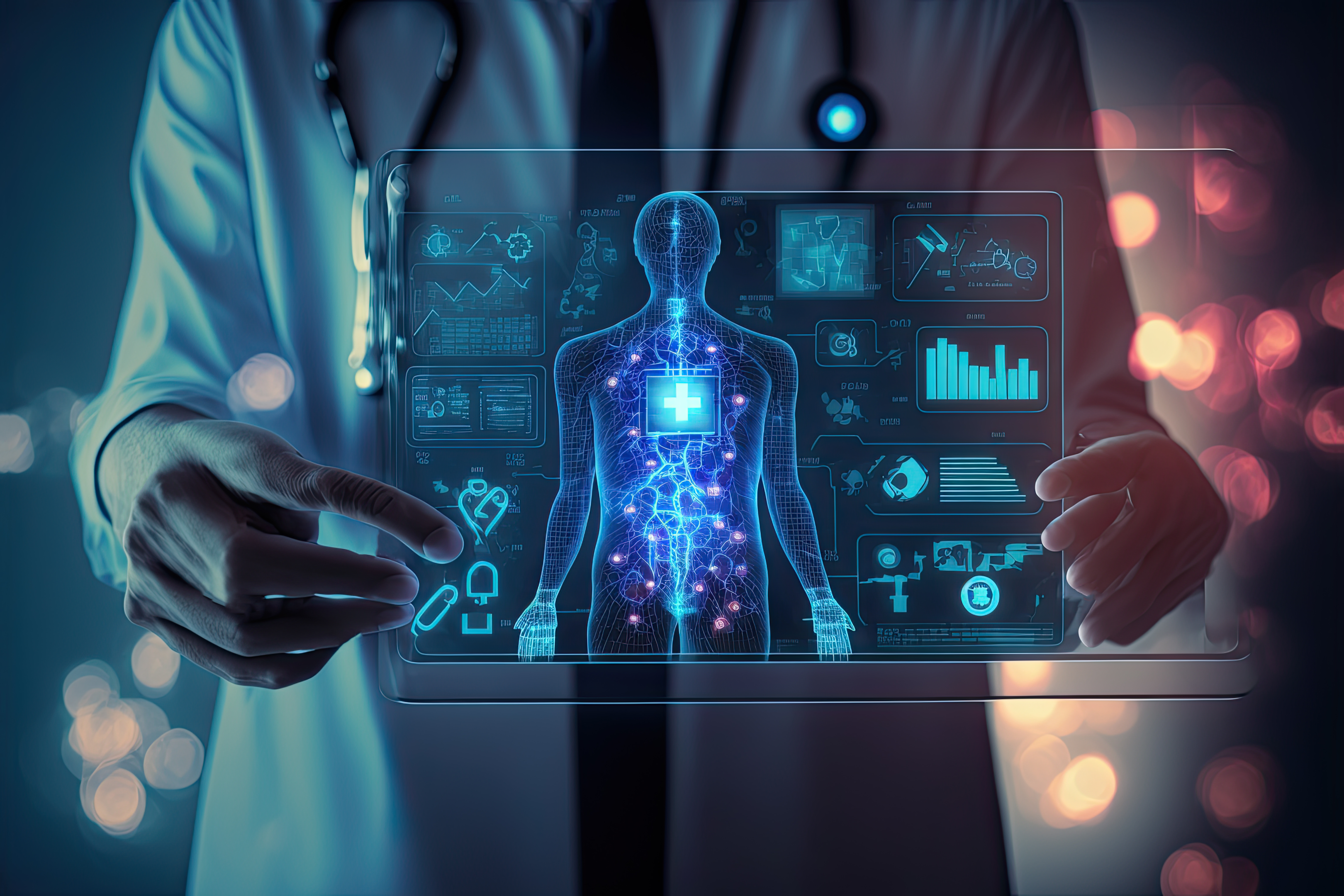
The Role of ChatGPT in Patient Support, Medical Training, and Research
ChatGPT, as a large language model, has ai technologies and the potential to contribute to the field of healthcare in several ways.
Patient Education and Support
ChatGPT can provide valuable information and support to patients. It can answer questions about common medical conditions, medications, and treatment options, empowering individuals to make educated decisions about their health. ChatGPT can also offer guidance on managing chronic conditions and provide lifestyle recommendations for promoting overall well-being.
Telemedicine Support
With the increasing popularity of telemedicine, ChatGPT can play a role in facilitating remote consultations. It can assist healthcare providers by gathering patient information, generating preliminary assessments, and suggesting potential diagnoses based on symptoms provided. This can streamline the telemedicine process, improve efficiency, and support healthcare professionals in making well-informed decisions.
Mental Health Support
ChatGPT can offer mental health support by engaging in conversations with individuals experiencing emotional or psychological distress. While it’s critical to note that ChatGPT isn’t a substitute for professional therapy, it can provide a listening ear, offer resources, and help individuals better understand their emotions. It can also assist in mental health screenings and risk assessments.
Medical Training and Education
ChatGPT can be utilized as a training tool for medical professionals, helping them enhance their knowledge and skills. It can simulate patient interactions, allowing healthcare practitioners to practice clinical decision-making, diagnostic reasoning, and communication skills in a virtual environment. This can aid in medical education, residency programs, and ongoing professional development.
Medical Research and Literature Review
ChatGPT can assist researchers by quickly analyzing vast amounts of medical literature and extracting relevant information. It can aid in literature reviews, identifying key studies, and providing summaries of scientific articles. This can save researchers significant time and effort, enabling them to focus on advancing medical knowledge and discoveries.
Note: It is noteworthy that while ChatGPT can provide valuable assistance in healthcare, it should always be used in conjunction with human expertise and clinical judgment. Human healthcare providers play a central role in assessing, diagnosing, and treating patients, and AI models like ChatGPT are meant to augment their capabilities, not replace them. Ethical considerations, patient privacy, and data security must always be prioritized when integrating AI into healthcare settings.
A Brighter Future of Healthcare with Generative AI
The potential of generative AI in healthcare is vast, and with substantial investments in research and development, it is poised to revolutionize the industry in the years ahead. As generative AI in healthcare research continues to evolve, collaboration between healthcare providers and AI development companies becomes crucial to ensure responsible and ethical utilization of this technology. Addressing concerns related to data privacy, and security, and establishing frameworks for regulating AI implementation in healthcare is vital.
Generative AI development companies hold immense potential for introducing further advancements to the healthcare industry through innovative solutions using machine learning models and tools. These companies can focus on developing AI-powered technologies that address specific challenges faced by healthcare providers, including disease prediction, drug development, telemedicine, and operational efficiency.
The impact of AI on healthcare has been profound, transforming the industry by improving care quality, reducing costs, and ultimately saving lives.
HealthSnap: Powering Healthcare Organizations to Improve Health Outcomes with AI Technologies
The expectation is that the use of artificial intelligence in healthcare will continue expanding in 2023 and beyond, with new applications developing and established ones becoming more advanced. The application of AI in precision medicine, the development of AI-powered robotics for surgery and other medical operations, and the use of AI to enhance population health and avoid disease outbreaks are some of the key themes to watch in the coming years.
HealthSnap is a leading Virtual Care Management platform that has demonstrated a remarkable impact on chronic disease outcomes. Our cutting-edge Remote Patient Monitoring (RPM) program is specifically designed for healthcare providers, with a strong emphasis on cellular-enabled RPM devices. One of the key features of the HealthSnap Virtual Care Management Platform is its outstanding interoperability, seamlessly integrating with over 80 Electronic Health Record (EHR) systems. This ensures a smooth and efficient flow of patient data for healthcare providers, enhancing the overall care experience.
Our cellular-enabled RPM devices, including pulse oximeters, scales, blood pressure monitors, and glucose meters, are incredibly user-friendly. They are pre-configured and ready to use, eliminating the need for smartphones or WiFi connections. Patients can conveniently begin using the devices straight out of the box, with their measurements automatically transmitted to their dedicated care team.
At HealthSnap, we understand the importance of supporting medical professionals, care teams, and healthcare organizations in achieving their goals. Our platform is designed to enhance patient outcomes, reduce healthcare utilization, and provide diverse revenue streams. Whether it’s improving chronic disease management or optimizing overall patient care, HealthSnap is your trusted partner.
For healthcare providers seeking a comprehensive Virtual Care Management program without in-house capabilities, we offer full-service Care Management Services. Our accomplished team is ready to assist you every step of the way. Overall, 2023 is poised to be a watershed year for AI in healthcare, and as the technology evolves, we can look forward to more promising use cases in the years to come.
To learn more about our AI-powered Remote Patient Monitoring (RPM) and Chronic Care Management (CCM) tools and services, we invite you to call today at 888-780-1872 or click here to schedule a demo.

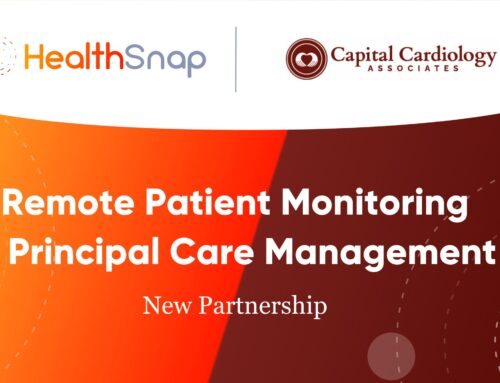
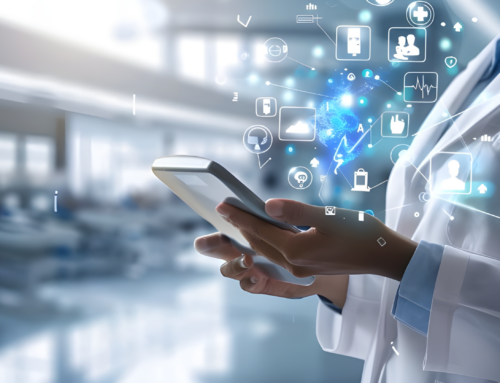
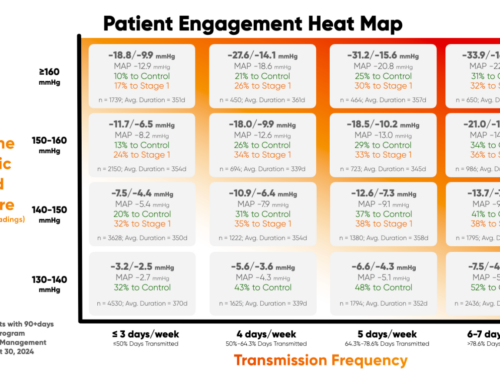
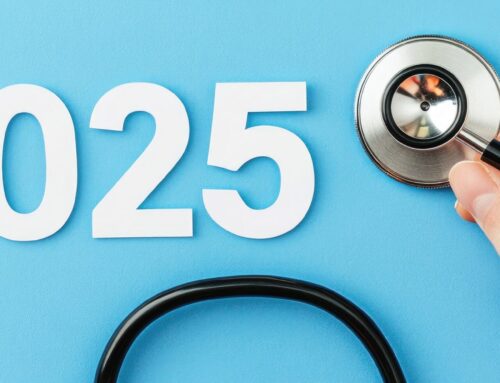






Leave A Comment
You must be logged in to post a comment.